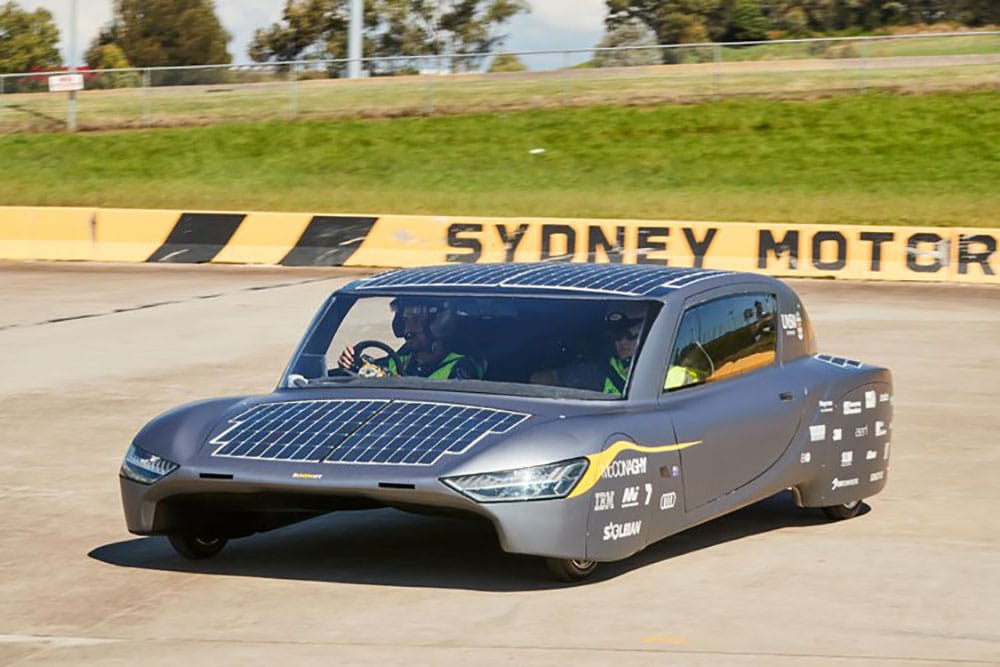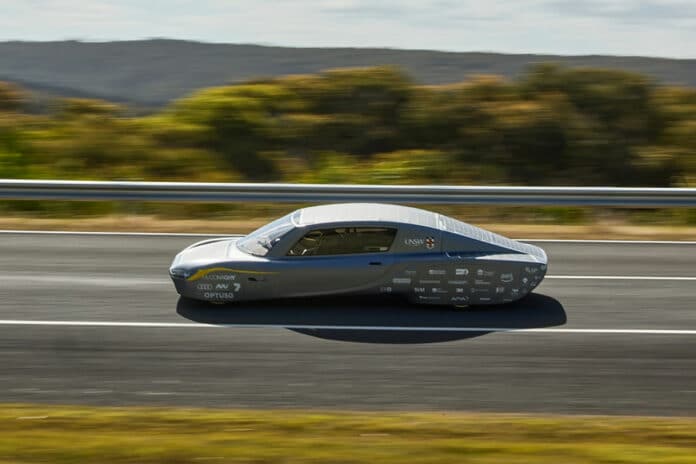Sunswift 7 solar-powered electric car, developed by students at the University of New South Wales Sydney (UNSW) in Australia, has claimed a Guinness World Record by traveling 1000 km (620 miles) on a single charge in under 12 hours. That equated to an average speed of nearly 85km/h and secured the Sunswift Racing team the record for the ‘Fastest EV over 1000km on a single charge’.
Sunswift 7 is the latest in a long line of successful solar-powered cars from UNSW since the first vehicle was produced in 1996. UNSW’s latest solar-powered car weighs only 500 kg (1,100 lb), about one-quarter that of a Tesla.
The car boasts impressive aerodynamics, incredibly low rolling resistance, and the use of smart materials. This is supported by high performance in terms of converting energy from the solar cells to the battery, efficiency of the motors, and throughout the drive chain.

The team spent the last two years building the Sunswift 7 with a Guinness World Record in mind for the fastest solar electric car over 1,000 km. The record attempt recently took place at the Highway Circuit test track at the Australian Automotive Research Centre (AARC) in Wensleydale, Victoria. Sunswift 7 completed 240 laps on a single charge of its solar-powered battery to break the record.
The record attempt did not go without drama, with the team needing to overcome a battery-management issue and a punctured tire to complete the journey. Driver changes also took place every few hours, with the car completing the 1,000-km journey in a verified time of 11 hours 52.08 minutes.
“During this record, the energy consumption was just 3.8 kWh/100km, whereas even the most efficient EVs on the road today only achieve a rating of 15kWh/100km and the average is around 20kWh/100km,” says the Team Principal, Professor Richard Hopkins. “Sunswift 7 isn’t a production car of the future since we’ve compromised on comfort and the cost is prohibitive. But we have shown that if you want to make cars more efficient, more sustainable, more environmentally friendly, then it is possible.”
Now, the Sunswift 7 is set to compete in the 2023 Bridgestone World Solar Challenge. The team has already begun development for the Sunswift 8, which will look to use a student-developed hydrogen battery.
